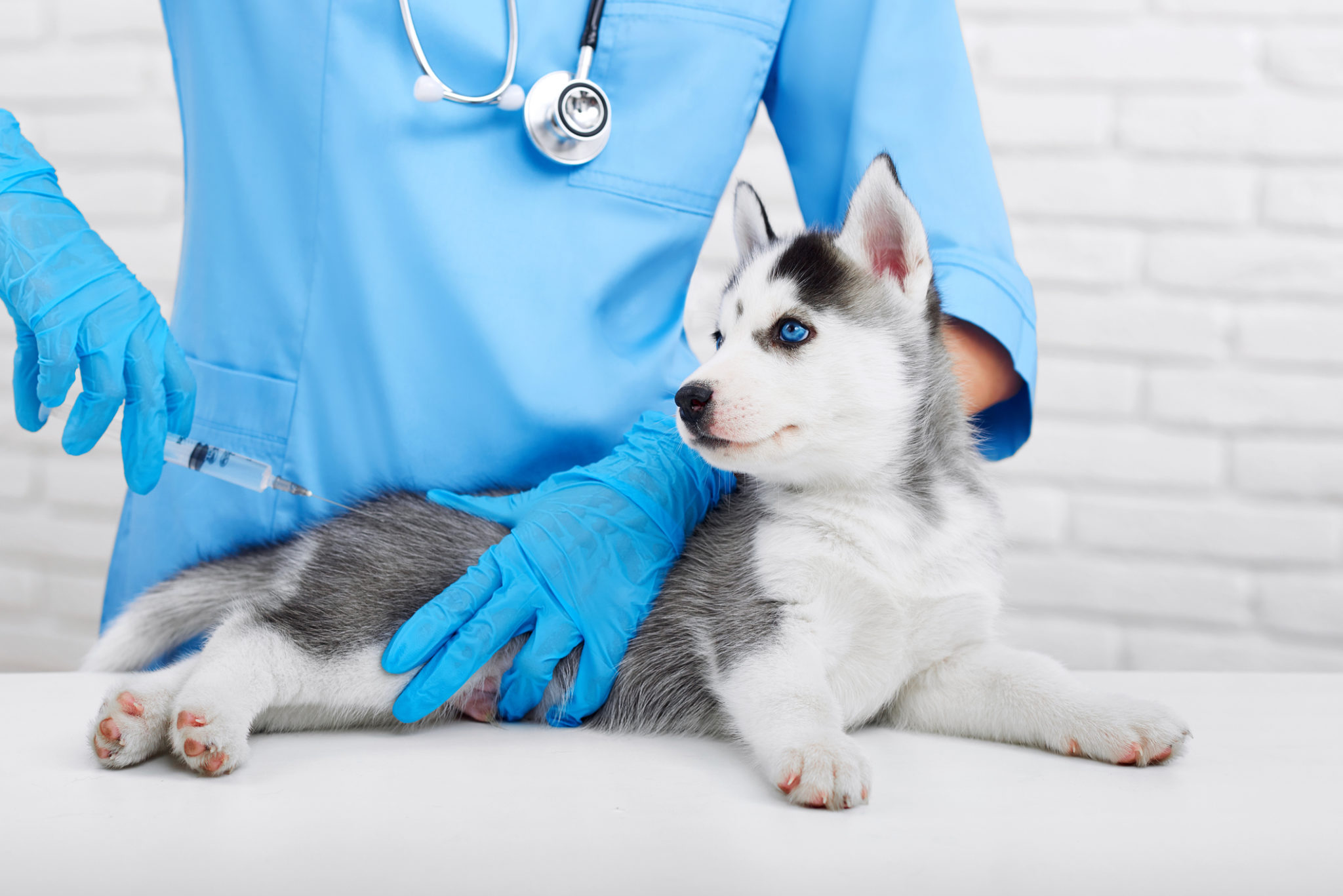
Aug 15, 2020 | By, For Pet's Sake
The best way to protect your pets against dangerous diseases
August is National Immunization Awareness Month. Consider this month your shot in the arm to make sure your pets are up to date on all their vaccinations.
Vaccinations for animals work in the same way as they do for humans. They contain deactivated versions of a disease, allowing your pet’s body to recognize the disease and develop immunity to the real disease.
Some vaccinations are required, while others are strongly recommended based on location and lifestyle.
Vital vaccinations
Most state laws require pet owners to vaccinate their pets for rabies, which is a deadly disease that can affect both animals and humans. Any mammal is capable of spreading rabies, so it’s important to keep your pet away from wild animals and to visit the vet for the rabies vaccine.
Pets also have the luxury of receiving a combination vaccine known as the distemper shot. Wouldn’t it be nice if you could go to the doctor and get all your vaccinations done with only one needle prick? The combo shot for dogs covers distemper, hepatitis, parainfluenza, and parvovirus. For cats, the shot covers feline viral rhinotracheitis, calicivirus, and panleukopenia.
Recommended vaccinations
Depending on where your pet likes to play and how curious they are, other vaccinations might be valuable. Dogs and cats are susceptible to different diseases, so the type of pet you have matters.
Dogs are encouraged to have immunizations for leptospirosis, bordetella, Lyme disease, and canine influenza. Cat owners should consider immunizations for feline leukemia, feline immunodeficiency virus, feline infectious peritonitis, bordetella, and chlamydia.
A word about coronavirus
Dogs and cats can contract various types of coronaviruses. This virus type has turned into a buzzword because of COVID-19, but the good news is that very few cases of COVID-19 have been detected in pets worldwide. Other coronaviruses that affect dogs and cats are different from COVID-19. A vaccine is available for canine coronavirus disease (CCoV), which causes intestinal problems in dogs.
Work with your veterinarian
There are multiple levels of pet insurance that owners can purchase. Insurance is not required for pets, but it can help cover vaccines, exams, and surgeries.
Ask your veterinarian for a document showing the current vaccinations your pet has. While your vet’s office should keep this on file, having a record for yourself will remind you when you need to renew your pet’s immunizations. Your vet can recommend a schedule for vaccinations.
Before bringing a new pet into your home, talk to the breeder or shelter about the animal’s vaccination history. Your veterinarian will then work with you to make sure your pet is completely up to date. While there are some inherent risks with vaccinations, most pets react well to them. Then you can breathe a little easier knowing your pet has an immunity boost against the terrible diseases that could affect them most.
Have a question about pet health? Want to become the best possible pet parent? Find helpful tips, reminders, and insight to giving your furry friend the best possible care with For Pet’s Sake! Learn more at drdevonsmith.com.

